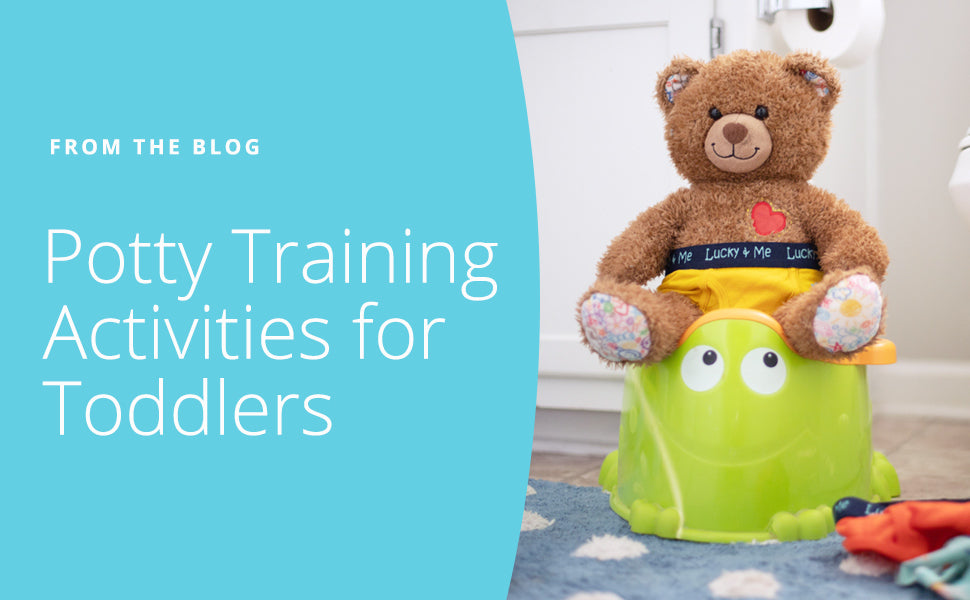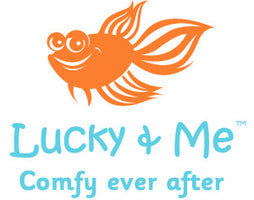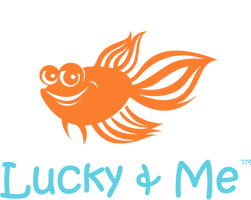
By Jessica Rapp Irwin of Rooted in Routine
Potty training is a huge milestone for both your toddler and you as a parent. When you think about it, it’s a really big deal! Your toddler is learning a brand new skill that they will then use for the rest of their entire lives.
It can feel overwhelming to know when to start the potty training journey and how to teach your child this new skill. Toddlers are notorious for their resistance to change and their desire to control things - two things that can make the potty training process more challenging.
It’s important to make the potty training process as enjoyable and stress-free as possible for both you and your little one. Once you've chosen which potty training approach you'd like to use, incorporate simple, fun, and developmentally-appropriate potty training activities into your toddler’s routine to make it more fun for everyone. Let’s get into some potty training activities you can try before, during, and after you start potty training!

6 Simple Potty Training Activities For Toddlers
Before you can expect your child to successfully pee or poop on the potty, they need to know what the potty is used for. The more familiar your child is with this concept, the easier the potty training process will be down the road. Toddler’s brains like to know what to expect (they don’t like surprises!), so it’s best to incorporate these potty training activities into their routine even before you officially plan to say good-bye to diapers.
1. Read potty books
One of the best ways to introduce your toddler to the potty training process is through books. Young children learn best through story-telling. Reading books about the potty helps familiarize your toddler with the concept. Click here for some recommendations for potty training books for toddlers.
2. Sing potty songs
Another fun way to help your toddler become interested in and excited about the potty is to sing songs about potty training. Music is a fun way to connect with your child and make the experience more enjoyable. This Daniel Tiger’s Neighborhood potty song is a popular one amongst toddlers! Singing songs together helps everyone involved have a positive attitude about using the potty.
3. Play with dolls and stuffed animals
Toddlers love practicing new skills through playing pretend. Grab a little potty and show your toddler how their favorite animal can sit on it when they have to pee or poop. Then let your toddler take a turn and pretend to have their doll or stuffed animal sit on the potty.
4. Have a bathroom party
This may already be happening in your household because your toddler may already follow you everywhere, but one of the best ways to get them excited about using the potty is to let them watch you use the toilet. Encourage your toddler to come into the bathroom with you and then narrate out loud each step that you’re doing. Let them help you flush and wash your hands together, too!
5. Sit on the little potty
Long before you consider officially starting the potty training journey with your toddler, it’s best to purchase a little potty and have your toddler casually practice sitting on it. Show them how to take off their pants and diaper and sit down on their little potty (yes, boys will sit at first too!). Do not worry about whether they actually pee or poop in their potty - they are simply getting comfortable with the idea, so it’s best to keep it positive and fun. You can build this potty-sit into their daily routine so that they start to see this process as a normal part of their day.
6. Implement target practice
For older boys (around age 3 and up), consider putting small objects (like Cheerios or Goldfish) inside their potty and let them practice aiming to pee on them. This is a great potty training activity to try once your child is using the potty more regularly and shows interest in standing up. This can make the potty training process more fun for some boys!

Download your free potty training reward chart here!
Consider Using Sticker Charts And Rewards
For some toddlers, implementing a sticker chart or small reward for potty successes can limit pushback and increase their motivation to use the potty. Consider your child’s personality and assess whether or not you think this may be beneficial for them. Some toddlers learn to use the potty easily without any outside rewards, and others do better with these systems in place.
A good place to start is by using a sticker chart for potty training. Draw or print out a chart with small boxes where your child can place a sticker each time they try to use the potty. Start with potty attempts where they simply earn a sticker for sitting on their little potty, and eventually move to successes where they earn one only for successful pees or poops in the potty. You can also laminate their chart and use a dry erase marker to check off a box each time they sit on their potty. Sometimes something as simple as this provides the right-level of motivation for toddlers and helps positively reinforce the new behavior we are looking to see.
If your child needs extra motivation, some families find it helpful to use a small token or reward for each potty trip. Some ideas include: M&Ms, goldfish, raisins, a stamp on their hand, or earning special time with mommy or daddy.

The Importance Of Consistency And Routine In Potty Training
Toddlers and young children thrive on routine, so it’s important to incorporate a routine surrounding the potty from the very start. Even before you are ready to potty train, consider having them practice sitting on their small potty at the same time each day. Build this into a pre-existing routine, such as right before or after bath time, or after breakfast. This helps your toddler understand that sitting on their potty is something that naturally fits into their daily routine.
You can also develop a routine for what happens directly before and after they sit on their potty. Help them practice the steps that are associated with the potty such as pulling their pants up and down, flushing the toilet, and washing their hands. The more consistently you practice these steps in the correct order each time, the more easily your child will eventually learn to do them by themselves.
Once you do officially begin potty training, it’s important to be consistent in what your new expectations will be. It’s best to get rid of daytime diapers first (before naps or nights) and make it clear that all pee and poop now belongs in their potty. It is normal for your child to show some resistance at first which can be hard. It is also normal for your child to have accidents during the potty training process, especially at night. It may feel tempting to give them back their diaper if they are struggling, but this often makes it even more confusing for your child because they are being told two contradictory things. Try your best to stay consistent with the new expectation of using the potty, without forcing or pressuring your child. If they have an accident, respond calmly and simply let them know they can use the potty next time.
Conclusion
The potty training process may feel overwhelming for both you and your child, but incorporating some or all of these potty training activities for toddlers can help both of you have a more positive and enjoyable experience. While this is a big milestone, it’s also an exciting time of transition in you and your child’s life. Do your best to stay patient and be open to trying out different potty training activities to find which are the most exciting for your child.
If you’re looking for more help on how to potty train, check out the Potty Training Bootcamp Course by Rooted in Routine. This self-guided online course will teach you exactly how to potty train your child using a realistic, routines-based, developmentally-friendly potty training method.
By Jessica Irwin: Jessica Irwin is a childhood routine expert, pediatric occupational therapist, mom of a toddler, and lover of all things child development. She founded her online business, Rooted in Routine, to help parents learn simple, easy-to-implement routines for optimal child development at every age. Her approach is largely rooted in going back to the basics to help you establish solid, age-appropriate routines for your child for things like mealtimes, play, potty, and sleep. She believes this is the most important foundation you can provide for your child - and she wants to help you do just that!


